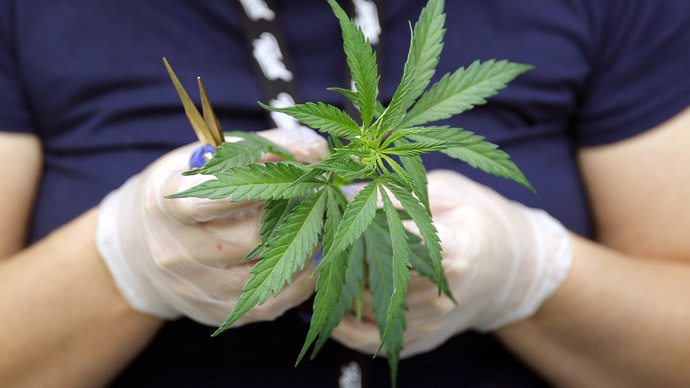Just because pot is legal in your state, doesn’t mean you won’t get in trouble for smoking that doobie outside, even if you have a prescription for it. At least that’s what some homeowners’ associations (HOAs) are saying.
“Marijuana and hemp have joined wacky paint colors and unsightly fences as common neighborhood disputes facing homeowners’ associations,” the Associated Press reported.
HOAs can’t prevent their residents from growing or smoking pot inside their homes, but they do have jurisdiction outside of the home. Neighborhood boards have every right to regulate the drug as a nuisance or a threat to children, along the lines of a swimming pool with no fence.
Jerry Orten, an HOA legal analyst and spokesman for the Community Associations Institute, told the Denver Post that, when nuisances occur, HOAs can take some internal measures, from suspending certain privileges to seeking a court injunction.
“The fact that people may be legally entitled to smoke doesn’t mean they can do it wherever they want, any more than they could walk into a restaurant and light up a cigarette,” Richard Thompson, who owns a management consulting company that specializes in condominium and homeowner associations, told AP.
"What we're really seeing more now is regulating the associations' common areas," such as smoke wafting onto playgrounds or others' porches, Erin McManis, an attorney in Phoenix whose firm represents hundreds of Arizona HOAs, said.
At Breckenridge’s River Mountain Lodge in Colorado, where condos are mostly rented out to vacationers, the board banned growing pot and distributing it, regardless of whether it’s for medicinal or recreational purposes, the Post reported.
All it takes is a two-thirds vote by the association’s homeowners to ban the use or cultivation of cannabis, Orten said.
“People can agree to things which waive their constitutional rights. That’s the essence of covenants,” he added. “An association can have a covenant precluding use of marijuana.”
In February, the HOA at Carillo Ranch, in the Arizona town of Chandler, proposed that residents could not smoke marijuana ‒ medical or otherwise ‒ outdoors on their property. Pot is legal only for medicinal use in the Grand Canyon State. The board withdrew its proposal in March after many of the subdivision’s residents opposed the ban as too harsh.
But, if such a ban were to occur, there could be a legal loophole that overrules such a board decision, but only in regards to medicinal use of the plant.
“Here’s the elephant in the room when it comes to medical marijuana: A homeowners association is subject to federal and state fair-housing laws,” attorney Augustus Shaw said to AZ Central in February. “In order to get a medical-marijuana prescription, you must have some type of ailment or disability. If you have a prescription, ... you are most likely covered by the Fair Housing Act.”
The battle between HOAs and pot proponents is not a new one. In 2010, HOAleader.com, which touts itself as “the practical guide to homeowner association management,”wrote about the issue of medical marijuana regulation by neighborhood and condo boards.
They suggested that it may not be worth the potential disputes to ban pot.
"Many condo associations have outlawed smoking [cigarettes] altogether," Elizabeth White, a shareholder and head of the community associations practice at the law firm of LeClairRyan in Williamsburg, Va., said. "Many associations have encountered a lot of issues with enforcing the no-smoking ban. This issue will be somewhat analogous to that issue.”
White said that, when it comes to enforcement of a pot ban, "We're damned if we do and damned if we don't." She, like Shaw, referred to state and federal fair housing laws covering the use of medical marijuana.
Jim Denny, of Brighton, Colo., came up against his HOA when he grew hemp against his community’s bylaws. He ended up selling his plants for about $3 each, a good price for a plant whose seeds can cost up to $10 each because it can’t be imported. Hemp activists offered to pay the up to $600 a day in fines that Denny could have faced from the association, but he declined.
“I had people calling up and saying, `It’s just a shame; we’ll pay your fines all the way through to the end.’ But I decided in the end not to fight it,” Denny, a technical writer and former software engineer, told AP. “At the end of the day, I live here.”

